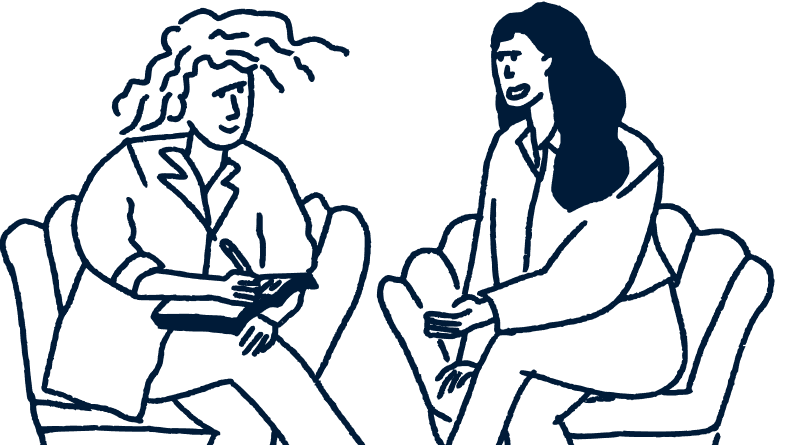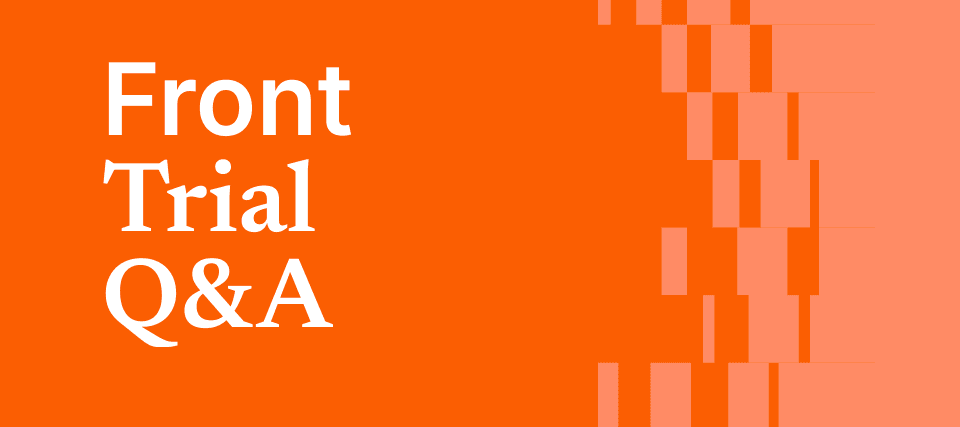Stories that focus on building stronger customer relationships


Articles
See all ›Customer service
What your customers wish you knew: Insights from the state of service expectations
Today’s customers are in control, demanding faster, more efficient service with a balance of AI and human touch. Our latest research reveals insights into customer loyalty with the tools you need t...
Read more →Customer service
New in Front: Amplify support quality with Smart QA, reimagined voice, and more
Provide top-notch service across all your channels with the latest features in Front: AI-powered Smart QA for instant quality insights, reimagined voice integrations starting with Dialpad, and powe...
Read more →Customer service
How logistics leaders are reimagining customer service to stay ahead
Front’s 2025 State of Service Expectations report reveals how leading logistics teams are using proactive communication, smart automation, and AI — when done right — to meet rising expectations.
Read more →Customer service
How to deliver above and beyond support for every customer, every time
The quality of the conversations between you and your customers can be tracked by your internal quality score (IQS). Not sure what yours is? Model your internal QA process after our award-winning s...
Read more →Customer service
Fueling excellence: 5 ways we recognize and energize our support team at Front
Support work is nonstop — that’s why recognition isn’t just appreciated, it’s essential. Here are five ways we celebrate and energize our team to keep morale high and motivation strong.
Read more →Customer service
Structure, studying, and human connection: How we onboard new support reps at Front
Customer Support Specialist at Front Beyker Estrada shares the key elements that made his first months at Front both impactful and empowering.
Read more →Customer service
How to create a strong support <> product feedback loop through Support Fix meetings
Here’s why we introduced our quarterly product <> support syncs called Support Fix meetings — and how you can bring them onto your team
Read more →Customer service
Helpful, human, complete: The art of a great first response in customer support
In customer support, the first response sets the tone for the entire interaction, balancing speed, empathy, and accuracy to build trust and loyalty. By mastering this art, support teams can reduce ...
Read more →Workflows
Why you need a company AI policy since yesterday (and how to get started today)
It’s likely your employees are already using AI for work. Here’s how to set responsible, ethical, and compliant usage guidelines.
Read more →Customer service
Support team wisdom: The subtle art of building trust through mentorship
Mentorship in customer support happens in everyday moments — quick tips, shared insights, real-time problem-solving. Creating a culture of learning makes all the difference.
Read more →Customer service
Your support team’s next career move is hidden in plain sight (here’s where to look)
Some of the most powerful career development moments for my support team didn’t happen in a formal review. They happened right in the queue. These are the subtle hints that leadership needs to noti...
Read more →Customer service
I work from the office so my support team can stay remote. Here’s why it works.
Head of Support Kenji Hayward negotiated for a remote team in exchange for being the in-office leader. Why? Because the data didn’t lie.
Read more →Customer service
How we built Queue Crushes: our support team’s framework for remote camaraderie and collaboration
Learn how Front’s support team built “Queue Crushes,” a collaborative framework for solving cases in real time while fostering remote camaraderie.
Read more →Front News
- Bringing real-time customer insights to Front: Announcing our acquisition of Idiomatic
- Say goodbye to the legacy help desk: Announcing modern ticketing, new AI innovations, and more
- Now hiring in Santiago: Front plants new roots in Chile
- Introducing Front’s new Chief Financial Officer, Meredith Finn
- AMGiNE and Front expand partnership to the UK
Popular
- Help AI better help your customers: 5 ways to improve your help center articles
- How to deliver above and beyond support for every customer, every time
- 5 best practices for stellar self-service support
- The secret sauce to better customer experiences? Cross-functional collaboration.
- Conquer email management: top strategies for customer service teams
Guest Writers
- 15 must-track SLA metrics to keep your team and customers aligned
- Help desk trends: how to give your service teams an edge in 2025
- How help desk workflows cut the drudge work from customer support
- Why stand-out support starts with a customer service desk
- Building a better queue: how to set up a support ticket system that grows with you














